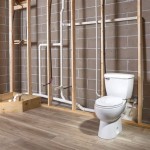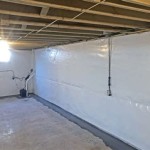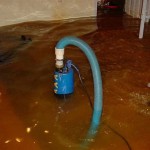What Is A Good Humidity For The Basement?
Basements, often described as the "underbelly" of a home, are unique spaces with varying degrees of humidity. This can create challenges, as excessive moisture can contribute to a range of issues, from mildew growth to structural damage. Conversely, a basement that's too dry can lead to discomfort and even the cracking of concrete walls. Determining the ideal basement humidity level is crucial for maintaining a healthy and comfortable environment.
Understanding Basement Humidity
Humidity refers to the amount of moisture present in the air. In a basement, humidity levels can fluctuate due to several factors, including:
- Water infiltration: Leaky pipes, cracks in the foundation, and poor drainage can allow water to seep into the basement, increasing humidity.
- Air circulation: Poor ventilation can trap moisture, preventing it from escaping and causing humidity to build up.
- Seasonal changes: During humid seasons, such as summer, moisture can easily penetrate the basement from surrounding areas.
- Household activities: Drying laundry, cooking, and showering can all contribute to increased humidity levels.
The ideal basement humidity range typically falls between 30% and 50%. This range provides a comfortable environment while mitigating the risks associated with excessive moisture. However, the ideal humidity level can vary depending on the specific climate and the materials used in the basement.
The Risks of High Basement Humidity
Excessively high basement humidity can have significant downsides, including:
Mildew and Mold Growth
Mold and mildew thrive in humid environments. High humidity creates the perfect breeding ground for these microorganisms, which can cause respiratory problems, allergies, and even severe health issues. Mold growth can also damage building materials, leading to structural deterioration.
Wood Rot
Wood components in the basement, such as beams, joists, and furniture, are susceptible to rot when exposed to high humidity. Wood rot weakens structural integrity and can eventually require costly repairs or replacements.
Corrosion
Metal objects, including pipes, appliances, and tools, can corrode in a humid environment. This can lead to leaks, malfunctions, and safety hazards.
Musty Odors
Increased humidity can trap moisture and create unpleasant musty odors in the basement. These odors can permeate the entire house, making it uncomfortable to live in.
Strategies for Managing Basement Humidity
Several strategies can be implemented to manage basement humidity and maintain an optimal environment:
Ventilation
Adequate ventilation is essential for removing excess moisture from the basement. This can be achieved by:
- Exhaust fans: Install exhaust fans in areas where moisture is generated, such as bathrooms and laundry rooms.
- Window fans: Open windows in the summer to increase airflow and remove humidity.
- Dehumidifiers: Use dehumidifiers to absorb moisture from the air, especially during humid seasons.
Moisture Prevention
Preventing water from entering the basement is crucial for controlling humidity. This can involve:
- Repairing leaks: Fix any leaks in pipes, faucets, or the foundation as soon as they are detected.
- Improving drainage: Ensure that gutters and downspouts are properly functioning and directing water away from the foundation.
- Grading the yard: Grade the surrounding soil to slope away from the foundation, preventing water from pooling near the walls.
Other Measures
Other measures that can help manage basement humidity include:
- Sealing cracks: Seal cracks in the foundation and walls to prevent moisture from entering.
- Using moisture-resistant materials: Consider using moisture-resistant materials, such as epoxy-coated concrete or moisture-resistant drywall, when finishing the basement.
- Controlling humidity-generating activities: Limit activities that generate moisture, such as drying laundry or showering, in the basement.

How To Achieve An Ideal Basement Humidity Of 30 50

Moisture In Basements Causes And Solutions Umn Extension

How To Achieve An Ideal Basement Humidity Of 30 50

What Is The Ideal Basement Humidity Level Epp Foundation Repair

How To Achieve An Ideal Basement Humidity Of 30 50

Overview Dehumidification In The Basement Or Crawl Space

Ideal Basement Humidity And How To Achieve It Epp Foundation Repair

Here Is The Ideal Humidity For Your Finished Basement

How To Reduce Humidity In A Basement Thermopro Blog

The Ideal Humidity Level For Your Basement Reliable Waterproofing








